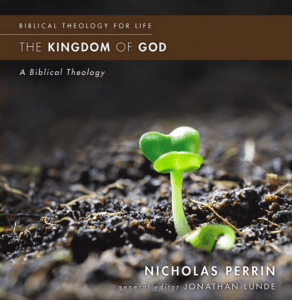How does the Christian live in, relate to and transform culture? This question, one that draws in the need for expertise in about fifty disciplines, shapes the lucid and informed and very brief study by Rich Mouw, Abraham Kuyper: A Short and Personal Introduction. Kuyper’s approach to the Christian and culture is a classic Calvinist formulation, but it has far more nuance than most. It seems most evangelicals and mainliners are generally in favor of the approach of Kuyper, though I doubt many operate with his sphere sovereignty. What survives then is a kind of unreflective activism. Kuyper can help.
What do you think of Kuyper’s famous “Mine!” approach?
Many Christians are instinctive Constantinians, even in our pluralistic world. They want the church to control everything, and are more than active in doing what they can to make that happen. Other Christians, often associated with Anabaptists (though that is a stereotype since there is a variety of anabaptist views), believe in forming a Christian culture in the Christian ecclesia/church and through the ecclesia they witness to the realities of the kingdom. For them participation in culture will have less importance, if any at all. So some withdraw completely while others participate some, though the oddity today is that an increasing number of anabaptists are sliding into a political activism that shows little contrast with Constantinians. As I said above, I suspect most Christians are a watered-down version of the Calvinist approach to the Christian and culture.
Mouw’s thesis is to show what Kuyper thought, and Kuyper — a multi-tasker if ever one was (he was pastor, theologian, journalist, university founder, political leader, president, etc) — pushed for what is called “sphere sovereignty.” Here’s a diagram found on the internet:
A secular model of this would replace “God” with “State,” while in a pure secular model both “God” and “Church” would be erased. The radical anabaptist model would move God to the left over “Church” and draw a big fat line up and down between “Church” and “Family.”
Kuyper’s thesis is that each sphere is to sustain its own sovereignty and methods and principles etc so that “State” does State things and leaves “School” and “Family” and “Church” alone. In American history Roger Williams was one who propounded this view with regard to Church and State.
The Christian’s impact in all of this is to be established in circles of influence inside each circle so that the Christian’s engagement in culture is within each sphere, not by raising “State” to under “God” and then through the “State” to reshape each sovereignty. So, the influence is a transformation from within the sovereignty of each sphere and not by the use of coercion or power or authority from another sphere. I wonder if James Davison Hunter’s “faithful witness” approach is a version of Kuyper.
This stuff is not simple since humans don’t simply dwell in a sphere: we inter-dwell in spheres and so we exercise our influence in various ways in differing spheres.
The big theme in Mouw’s well-written book is that over each of these spheres Christ declares “Mine!” This leads to the Christian mission of influence, but it always carries with it the danger of Constantine. That approach is not just how the Catholics shaped European culture from the 4th Century on but can be seen in the German Lutheran Church, Calvin’s Geneva, England’s Anglican Church, and the Puritans in the USA in their own communities. So “Mine!” is the problem. How to live out the “Mine!” in a pluralist culture?
Mouw knows Kuyper’s word isn’t the last word for the Calvinist theory of sphere sovereignty so he explores a few topics on which Kuyper did not speak, including race and evangelicalism and expanding the role of church and family and Islam.
This Kuyperian tradition has a tendency to understand Kingdom as a manifestation of common grace and to get Kingdom too far from church, and to see Kingdom wherever there is something good in this world — and I push back against this because of how kingdom is used by Jesus (I don’t think Jesus would ever say Herod’s good roads were kingdom stuff or what Caesar was doing in Rome with providing dole to be kingdom stuff). I also get a bit concerned with spherical sovereignties that are not integrated with one another enough or that are not connected enough to church … but all this is saying that I’m anabaptistic and Kuyper, well, he wasn’t.











